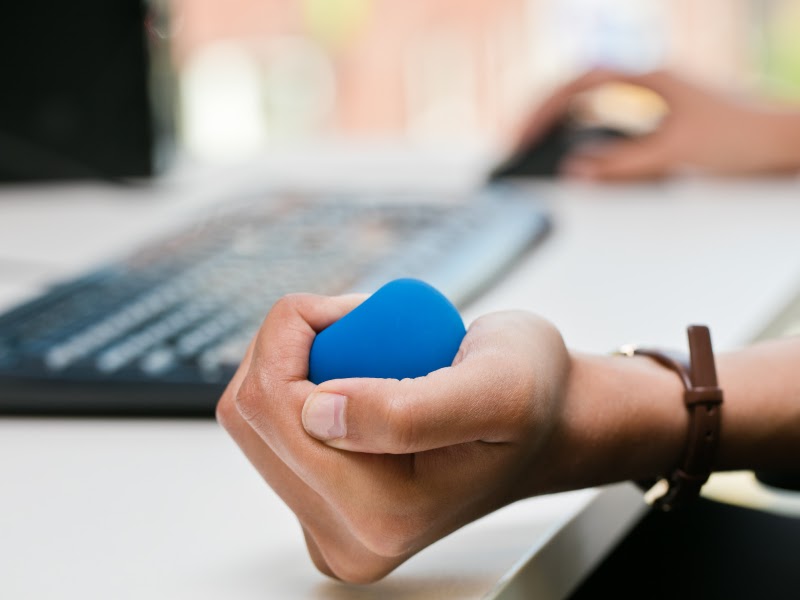2020 has been the stressful year to end all stressful years. The seemingly never-ending consequences of the COVID-19 pandemic have taken a mental toll on nearly everyone as a result of the mandatory lockdowns. While discussions around workplace, and general, burnout were not rare prior to the pandemic, the dialogue around overall mental health has ramped up over the past seven months. Burnout is defined as the “state of emotional, physical, and mental exhaustion caused by excessive and prolonged stress.” It is no secret that with everything that has occurred (or is occurring) within the short timeframe of this year has led to an uptick of people reporting intense burnout.
The social distancing and isolation that people around the world have faced have led to an exacerbation in symptoms of people with mental illness and have given others a look at what it is like to live with constant anxiety and stress. Adding in racial tensions and an increasingly contemptuous election to the worries around the pandemic is a lot for anyone to face. While many of us thought, maybe somewhat foolishly, that our pre-pandemic lives would have returned to us by now, that is not the case. Luckily, we as humans are adaptive, and there are many ways that we can manage our 2020-induced burnout without completely losing it!

How can I manage my pandemic burnout?
Burnout can make it difficult for people to find the motivation to decrease their stressors. The exhaustion brought about by constant stress can leave people too tired and directionless to focus on anything but their essential tasks. However, one of the best ways to take charge of your burnout is to optimize different forms of self-care. Since burnout, by definition, affects your mental, emotional, and physical health, it is important that you partake in activities that focus on at least one (or preferably all) of these categories. While many gyms and physical fitness studios still remain closed, or at limited capacity, due to the pandemic, there are still ways you can focus on exercising without these places.
The same can be said for mental and emotional health. In-person therapist visits may be off-limits, or with human interaction restricted by the use of masks and a six-foot distance, but virtual therapy has become an increasingly available option for people seeking these services. Naturally, the practice of self-care is distinct from person to person. Anyone can offer up advice on practices to use in order to take care of your physical and mental health, but you will not really discover what works for you until you go through some trial-and-error. Fortunately, you are not hurting yourself by doing any of the below tasks! Even if you find they will not work for you long-term, you may still garner some well-deserved short-term relaxation out of these practices!

1. Reward yourself!
One of the best ways to feel like you are actually making progress is the process of self-rewarding. While the practice may seem juvenile to some, it actually has a myriad of benefits. However, do not feel like you have to run a marathon or complete over-the-top acts of charitable service in order to feel good about what you’re doing. Tasks and things as simple as taking a long, peaceful walk after a tiring workday or ordering delivery from your favorite restaurant can be enough to make you feel like you are doing great!
2. Journal
You have probably been given this advice a hundred times over by now, but this guidance is repeated so frequently for a reason! Journaling can help you make sense of your thoughts and emotions, which is likely to become an essential skill in the future due to the craziness of the past year. In addition, journaling can also help you boost your own mood. Putting your thoughts down onto paper (or a Word document, or your phone’s note app if that’s what you prefer) can make you feel less alone with your thoughts and lend validity to all of the things you’re feeling. Try writing down a list of all the things big and small you are grateful for and see how you feel!
3. Exercise
No, I’m not saying you have to turn into a gym-monkey. But you don’t have to hit the machines every day of the week to reap the rewards of frequent exercise. Any type of physical movement can stimulate the chemicals in your brain to help you relieve stress and let go of some tension. If you feel like joining the gym, that’s great! But if you don’t, doing some light cardio around your neighborhood or some moderate yoga stretches at home can fulfill this purpose to the same effect.
4. Step away from the screen
This is probably the piece of advice that is the hardest to follow through on. With technology and social media dominating almost every aspect of our lives, it can be hard to put down our devices sometimes. Purposefully ignoring your phone or emails for a period of time can be especially difficult for people who like to keep themselves updated on the constantly changing news cycle. It has been documented that the near-constant use of social media can lead to depression, and the crazy news stories can lead to an even worse sense of feeling out of control. Do yourself a favor and limit your screen time!
Surviving pandemic burnout is not an impossible task! It is no secret that living in these unprecedented times can trigger stress and anxiety in even the most level-headed of people, and it is an admittedly difficult task. But fear not! If you take the time to care for yourself, and recognize that you will push through this, you will be tackling all of your pandemic related burnout in no time!
